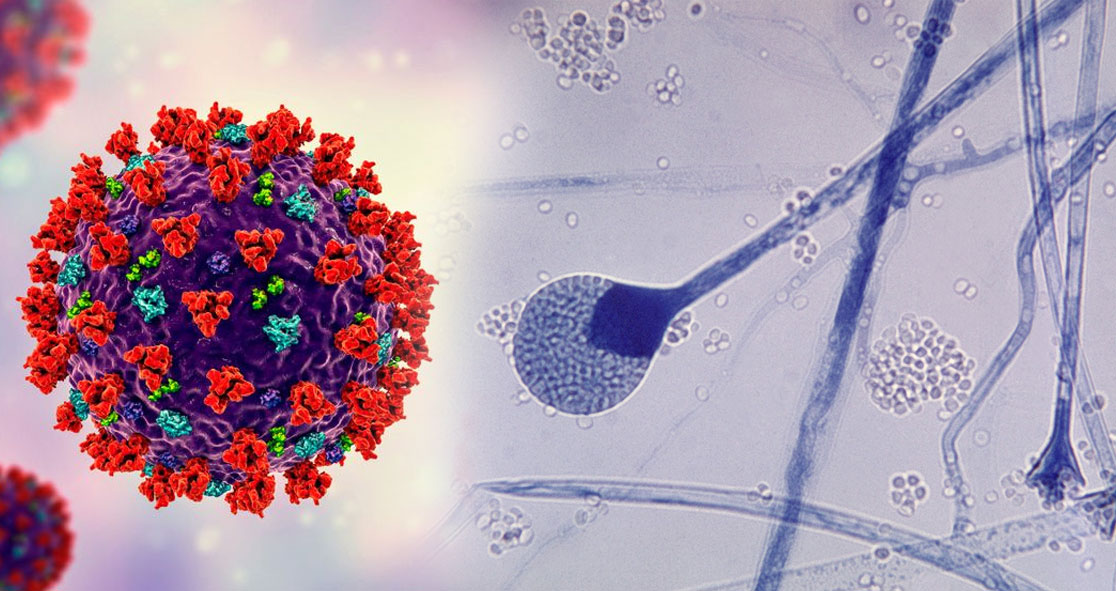As a deadly second wave of COVID-19 is greatly affecting India, doctors are reporting “black fungus,” a rare but serious fungal infection in patients who are recovering or have recovered from COVID-19 infection.
Also called mucormycosis, the black fungus has been detected relatively frequently among COVID-19 patients in a few Indian states. This type of fungal infection often manifests in the skin and affects the lungs and the brain.
With a growing number of black fungus cases in India, public health officials issued an evidence-based advisory on the disease.
Mucormycosis is one of the rare infections caused by exposure to mucor mold that is often found in soil, plants, manure, and decaying fruits and vegetables.
Dr. Akshay Nair, a Mumbai-based ophthalmic surgeon, said of black fungus, “It is ubiquitous and found in soil and air and even in the nose and mucus of healthy people.”
The fungus affects the sinuses, the brain, and the lungs. It could particularly be life-threatening in people with diabetes and those who are immune-compromised, such as patients with cancer or HIV/AIDS.
Experts believe that mucormycosis is triggered by the use of steroids, which are used in severe or critically ill COVID-19 patients.
Steroids are known to reduce lung inflammation in COVID-19 patients, but at the same time, they reduce immunity and increase blood sugar levels in both diabetics and non-diabetic patients with COVID-19. It is thought that this drop in immunity could be triggering these cases of mucormycosis, according to BBC.
“Diabetes lowers the body’s immune defenses, coronavirus exacerbates it, and then steroids which help fight COVID-19 act like fuel to the fire,” explained Dr. Nair, who has seen more than 40 patients suffering from black fungus associated with COVID in April.
ENT specialist Dr. Renuka Bradoo told Soutik Biswas, India correspondent, BBC, “We are already seeing two to three cases a week here [in Mumbai’s Sion Hopistal]. It’s a nightmare inside a pandemic.”
Another ophthalmic surgeon Dr. Raghuraj Hegde told Biswas a similar story, who has seen 19 cases of mucormycosis in the last two weeks, most of them young patients. He said, “Some were so sick that we couldn’t even operate on them.”
Dr. Nair said he has come across not more than 10 cases of black fungus in Mumbai in the last two years, but “this year is something different.”
Patients with mucormycosis have symptoms of a stuffy or bleeding nose, pain or swelling in the eye, drooping of eyelids, blurry vision, and loss of vision. They also notice black patches of skin around the nose.
Mumbai-based diabetes expert Dr. Rahul Baxi told Biswas, “One way to stall the possibility of the fungal infection was to make sure that Covid-19 patients – both in treatment and after recovery – were being administered the right dose and duration of steroids.”
Dr. Baxi treated nearly 800 diabetic patients with COVID-19 in the past year and nobody had contracted black fungus. He said, “Doctors should take care of the sugar levels after the patients are discharged.”
Mucormycosis is treated with prescription antifungal medicines, usually amphotericin B, posaconazole, or isavuconazole, according to CDC. These medicines are given either intravenously or orally. Other antifungal drugs such as fluconazole, voriconazole, and echinocandins have been found ineffective against mucormycosis. The CDC says mucormycosis often requires surgery to cut away the infected tissue.























